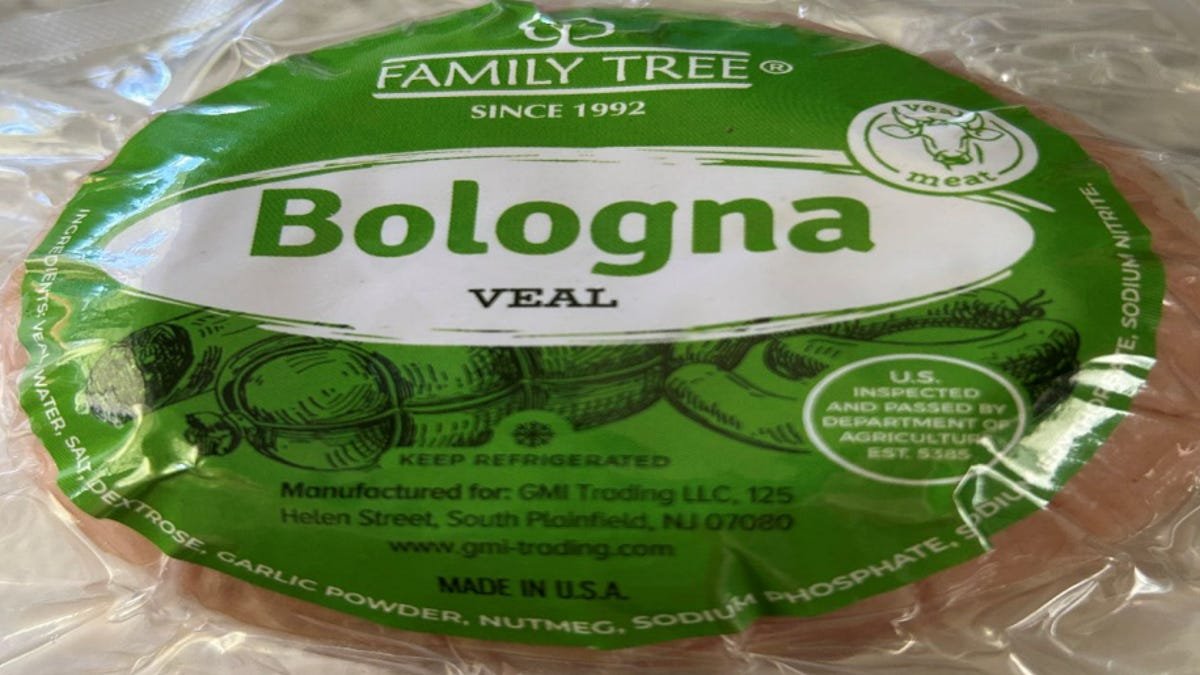USDA recalls more than 140,000 pounds of bologna for mislabeling
FDA approves twice-a-year shot to prevent HIV
The U.S. Food and Drug Administration has approved the world’s only twice-a-year shot to prevent HIV. (Scripps News)
Scripps News
A brand of bologna is getting recalled by the U.S. Department of Agriculture’s Food Safety and Inspection Service due to a mislabeling issue.
According to the announcement, over 143,416 pounds of Gaiser’s European Style Provisions Inc. deli meat products have been pulled due to materials that may not have been mentioned on the product labels.
Here is how to identify the mislabeling of the ready-to-eat bologna.
What brand of bologna is being recalled?
Due to labeling issues that failed to state the presence of pork clearly — and in some instances, beef and chicken — certain bologna products have been recalled.
The recalled bologna was distributed under various brand names and sold at wholesale and retail outlets between March 20 and June 20. If you’ve bought bologna within the last three months, check the packaging for specific details to see if your product is included in the recall.
- Vacuum-packed packages of “FAMILY TREE BOLOGNA VEAL” containing undeclared pork.
- Plastic-wrapped packages of “BABUSHKA’S RECIPE CHICKEN BOLOGNA” containing undeclared pork.
- Plastic-wrapped packages of “FANCY BOLOGNA” labeled with pork as an ingredient but containing undeclared beef and chicken.
- Vacuum-packed packages of “GAISERS RUSSIAN BRAND DOKTORSKAYA BOLOGNA” containing undeclared beef.
- Plastic-wrapped packages of “GAISERS BOLOGNA VEAL” containing undeclared chicken and pork.
- Plastic-wrapped packages of “GAISERS TURKEY BOLOGNA” containing undeclared chicken and pork.
- Plastic-wrapped packages of “CHICKEN BOLOGNA KYPOYKA PABA” containing undeclared pork.
What should customers do if they have a recalled product in their home?
It’s good to be aware if you recently purchased a recalled product. There are steps to follow if you do have these products in your home. According to FoodSafety.gov, here are the steps you should take.
- Don’t panic: The majority of food recalls are not directly linked to an outbreak of foodborne illness. Instead, many recalls are initiated due to the potential risk of contamination in the food product. In such cases, food manufacturers often issue a recall as a preventive measure to safeguard consumers.
- Don’t eat the food or consume the drug: To ensure your safety, refrain from consuming any recalled food products. Always prioritize caution over convenience. Additionally, please refrain from donating the recalled food to food banks or providing it to your pets, as they are also susceptible to food poisoning.
- Don’t open the food: To prevent foodborne illnesses, refrain from opening and inspecting food. Bacteria and viruses responsible for such illnesses are invisible, odorless, and tasteless. If you do handle the product, ensure you thoroughly cleanse your hands with warm water and soap for 20 seconds afterward.
- Check the recall notice to find out what to do with the food: Upon a food product recall by a manufacturer, specific instructions are provided regarding the product’s handling. These instructions generally entail one of the following actions: Return the product to the original store of purchase for a refund. Dispose of the product safely to prevent it from being consumed by humans or animals, especially if the packaging has been opened.


